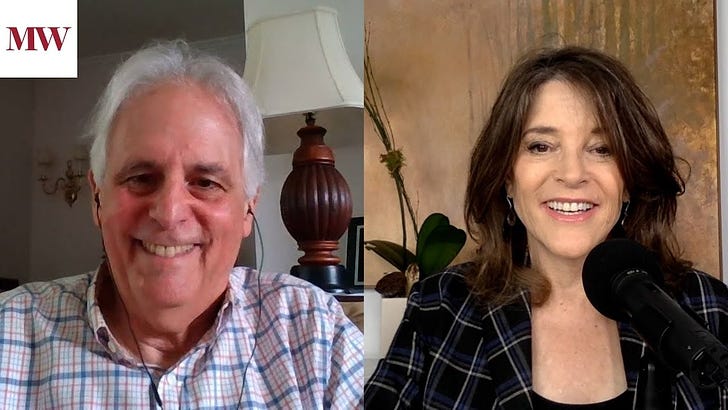Transactional to Transformational Politics
My conversation with Sam Daley-Harris
The word politics derives the root “politeia,” which means “of the people.” It doesn’t mean “of the government,” or “of the political parties,” or “of a political class.” It means “of the people.” It’s not a spectator sport, or a game. It’s our collective participation in things that mean life or death to millions of people, and ultimately to the planet and the species itself.
Whenever I hear someone say, “I’m not into politics,” I’m reminded of an old French saying, “If you don’t do politics, politics will do you.” To me, politics is a natural extension of the effort to live a decent life. We’re living in a world where it’s impossible to be a responsible citizen and concern ourselves only with things that affect us directly.
Add to that, anything that’s a public issue will ultimately make its way to your private door. Irresponsible environmental policies will ultimately affect the air you breathe and the weather conditions you experience; bloated defense spending bleeds over into militarized domestic police forces; and the allowance of toxic chemicals in our food and water affect the health of our own children. Public policies aren’t abstract, but rather practical realities that touch millions of people’s live not only here, but around the world. They are the living consequences of our collective behavior as it is expressed in who we vote for, what we lobby for, and what we stand for day to day.
A meaningful distinction made by many these days - including by my interviewee Sam Daley-Harris in the video below - is between transactional and transformational politics. Transactional politics is like allopathic medicine; it is worldly strategy meant to suppress and eradicate the symptoms of our societal dysfunctions. Transformational politics is more like integrative medicine; it addresses the deeper causes of our problems, seeking not only to change what is going on externally but affecting us psychologically and emotionally as well.
Sam Daley-Harris is someone who has had a big impact on my life, introducing me to the important work of the RESULTS organization as well as to Muhammad Yunus of the Grameen Bank. It’s from Sam and his colleagues that I have learned the most about deep poverty in the world, and how much each of us can do to help eradicate it. He is a model of citizen activism of the highest order.
Someone once asked me, “What can I do to build more self-respect?” and I responded, “Do more things to earn it.” I learned from my upbringing, and from my spiritual journey, that we can’t feel good about ourselves if we’re only living for ourselves. I hope you’ll settle in for my conversation with Sam-Daley Harris, and look into the organizations he mentions through which you too can make a difference. We’ve listed and linked to them below.
Sam has been my friend for many years. He has made a difference in the lives of millions, and I think he’ll make a difference in yours as well.
FCNL - Friends Committee on National Legislation
If each of us will just do what we can, I know in my heart we can change the world.




Loved your article. Looking forward to listening to the interview. Thank you 🙏
I am sorry that Sam Daley-Harris brought up Citizens Climate Lobby since it's a bogus organization with very conservative economic leanings that cannot truly help to resolve our climate crisis. They are a one focus legislative lobby group trying to say that a carbon tax with dividends for the people will suffice by being revenue neutral but that approach will not work under our current structure of governance in Washington, D.C. nor should it work. In fact, if such legislation would pass, well, it would create a global depression. I could go on at length about this in detail but the CCL isn't being forthright about their math on this matter.
I assume Mr. Daley-Harris has not looked closely into the specifics if he's been concentrating on mostly poverty topics. Other groups, like the Sierra Club, are transparent and offering transformational work. I encourage people to truly question the motives behind CCL as well as their having a leader with a corporate coaching-style that has spreads propaganda regarding their miscalculation about our climate emergency--a narrow focus not well thought out with questionable leaders serving on their board too.
Please do your due diligence before getting too excited about where you align yourself on climate change. I have been in advocate in this arena for a decade. Otherwise, good interview!